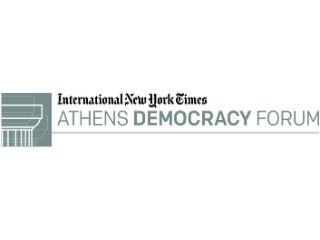by
Athanase Papandropoulos*
During the last century, democratic governments and large corporations commanded respect and were regarded as leaders of society. But nowadays they have lost their gloss. People of the Western world, are living in democratic and peaceful societies, but everyday trust in government and the political process and businesses is declining. The financial crisis, government profile scandals, corruption and the apparent lack of accountability have led many to question the authority vested in organisations long regarded as the Establishment.
In many parts of the world, today’s public –whether as consumers, employees, health service patients, or members of local communities– is more willing and more able than ever before to question what it is being told. Information about workings and failings of institutions is readily available alternative views.
Values, the concepts people believe in, the standards they live by, and the views they hold and by which they measure others, are shifting.
Business, as the principal motor for growth and development, is now firmly centre stage, bringing with it greater responsibilities and changing expectations of its conduct. As a consequence, it is increasingly in the spotlight and is open to the glare of public and media scrutiny. How a business acts in the light of those responsibilities, changing expectations and intensive scrutiny, is crucial of its on-going success.
The institutions that have held power for many years are under increased scrutiny: who is leading whom in the 21st century, ant to what end? All around the globe people clearly express the view that the most important source of leadership for achieving national goals will come from government. However, there is a split between whether national goals should be focused on economic concerns or on social and environmental issues.
In several parts of the world, opinion polls tests have defined this trend as a decline in deference to authority, which is attributed to a loss of trust in established institutions and organisations. This loss of trust is caused by a number of developments converging:
*Traditional political parties no longer appear to reflect issues voters want tackled,
*Institutions that are slow to respond to technological and social developments, such as shifts in attitudes towards feminism or the banking sector, may lose their relevance,
*Values are shifting in many parts of the world in relation to the role of women in society. They are also changing with regard to discrimination against race, gender, sexual orientation, age, and so forth,
*Minorities are more assertive about their rights, and the perceived abuses of those rights,
*Much of the media is new and international, making it easier for individuals to search out information for themselves. The effect of this is that it reduces the old inequality between experts and the general public,
*Post-Cold War, the old ideological battles that kept people loyal (or normally loyal) to their respective authorities, have largely collapsed,
*The end of communism and the move to more open, democratic societies has contributed to extra information being made available to many more citizens, especially as more of the media around the world has become free to report current events more accurately and provide a plurality of views and ideas,
*As new information becomes available about the past lies, incompetence, and corruption of many totalitarian regimes, there is a backlash against authority,
*Much of the media is new and international, making it easier for individuals to search out information for themselves. The effect of this is that it reduces the old inequality between experts and the general public,
*There are now more educated people across the world, who think for themselves and can access and evaluate information from different sources,
*As part of globalisation, the rapid rise of a global youth culture encourages more self-expression, with people conceiving, developing, and expressing their own ideas,
*Greater affluence in emerging countries leads to greater choice and heightened expectations of standards of service. Once these higher standards are experienced in the private sector, expectations spread to the public sector and to newly privatised services.
Independently of the financial crisis, this is a very important shift in consumers’ behavior.
Challenging authority
The internet in particular allows individuals to find out more about institutional behavior and enables them access to information previously restricted to experts and those in authority. Patients, for example, can find the latest medical research written about their condition –perhaps even ahead of their own doctors.
The result is a greater willingness of consumers to question decisions, rather than passively accept what they are told. It also makes them better equipped to argue with establishment figures and institutions. In Asia, for example, the internet is used to expose corruption and promote alternative political views, even in societies more used to deferential politics. Governments used to keeping a tight control on traditional media have generally been almost powerless to prevent dissenting views being spread via web sites and e-mails.
An old lop-sidedness in democracy (big business and big governments are better informed than individuals, so win most of the big arguments) is suddenly corrected. It used to be that executives and bureaucrats could assure small-fry citizens that problems have been analyzed, scientists consulted, safeguards put in place. Now citizens no longer need to accept those assurances helplessly. They can log on to the internet and check them with a few clicks of the mouse.
In this new world order some NGOs have also emerged as the institutions the public feels that can be trusted. The Human Capital Report 2015 of the World Economic Forum shows that NGOs are trusted two to one “to do what is right” compared to governments, media or corporations. According to the same surveys:
*NGOs ranked significantly higher as a source of credible information than media outlets or companies on issues including: labor and human rights; genetically modified food; environmental and health issues.
*NGO influence has increased significantly over the past decade, according to 64% of those surveyed.
*NGOs such as Amnesty International, Greenpeace, Sierra Club, and World Wildlife Fund have greater credibility with the public than corporations such as Exxon, Ford, Microsoft, Monsanto and Nike. Greenpeace is viewed by 80% of US respondents as highly effective and the figure is 78% for Amnesty International.
The consequence of a loss of standing for institutions –including business institutions– is that they can no longer expect automatic deference and trust. Trust and authority have to be constantly earned and re-earned, which requires a higher degree of accountability compared to that demonstrated by most today. I think that trust is a big challenge for democracy.
*Athanase Papandropoulos is Chairman of European Business Review and Honorary International President of the Association of European Journalists
**This piece was written on the occasion of the “Athens Democracy Forum” held on September 15th, 2015 - http://athensdemocracyforum.com/





 By: N. Peter Kramer
By: N. Peter Kramer
